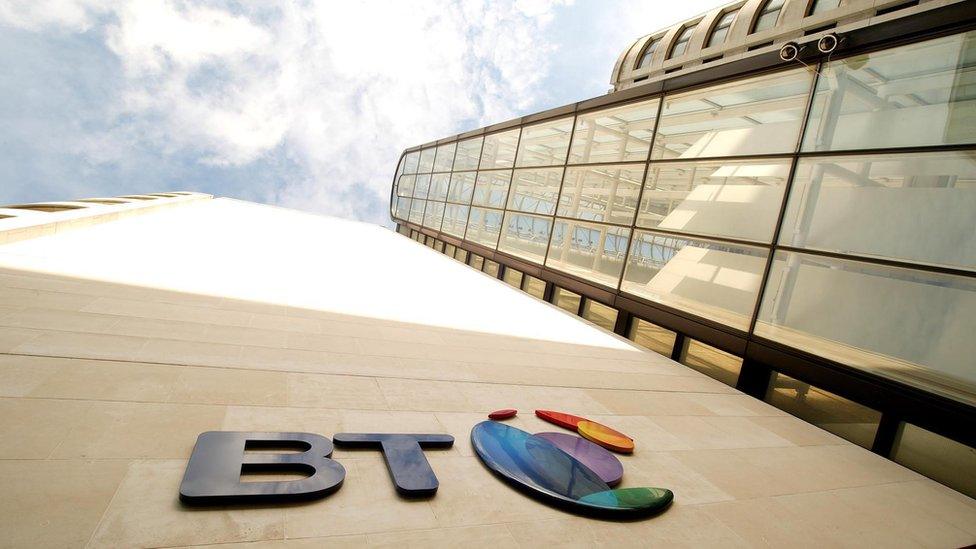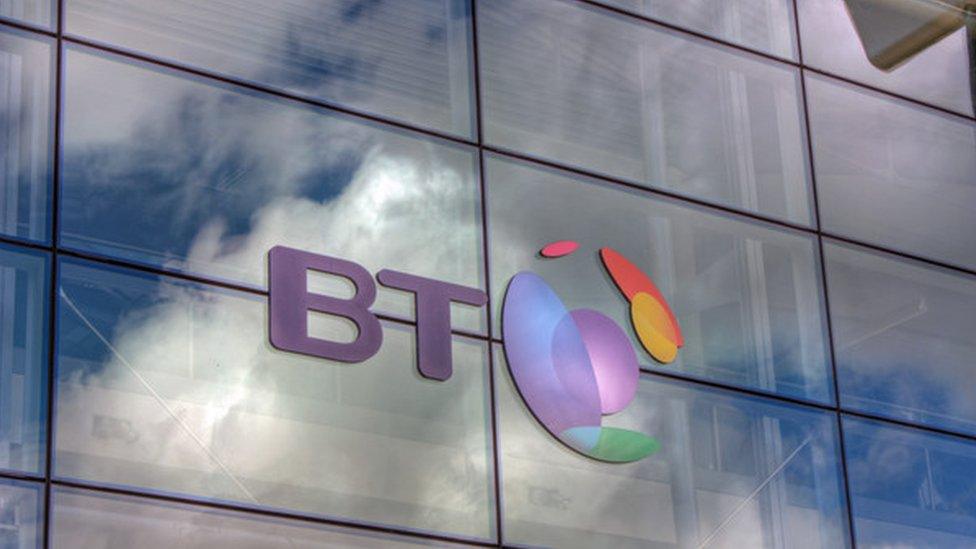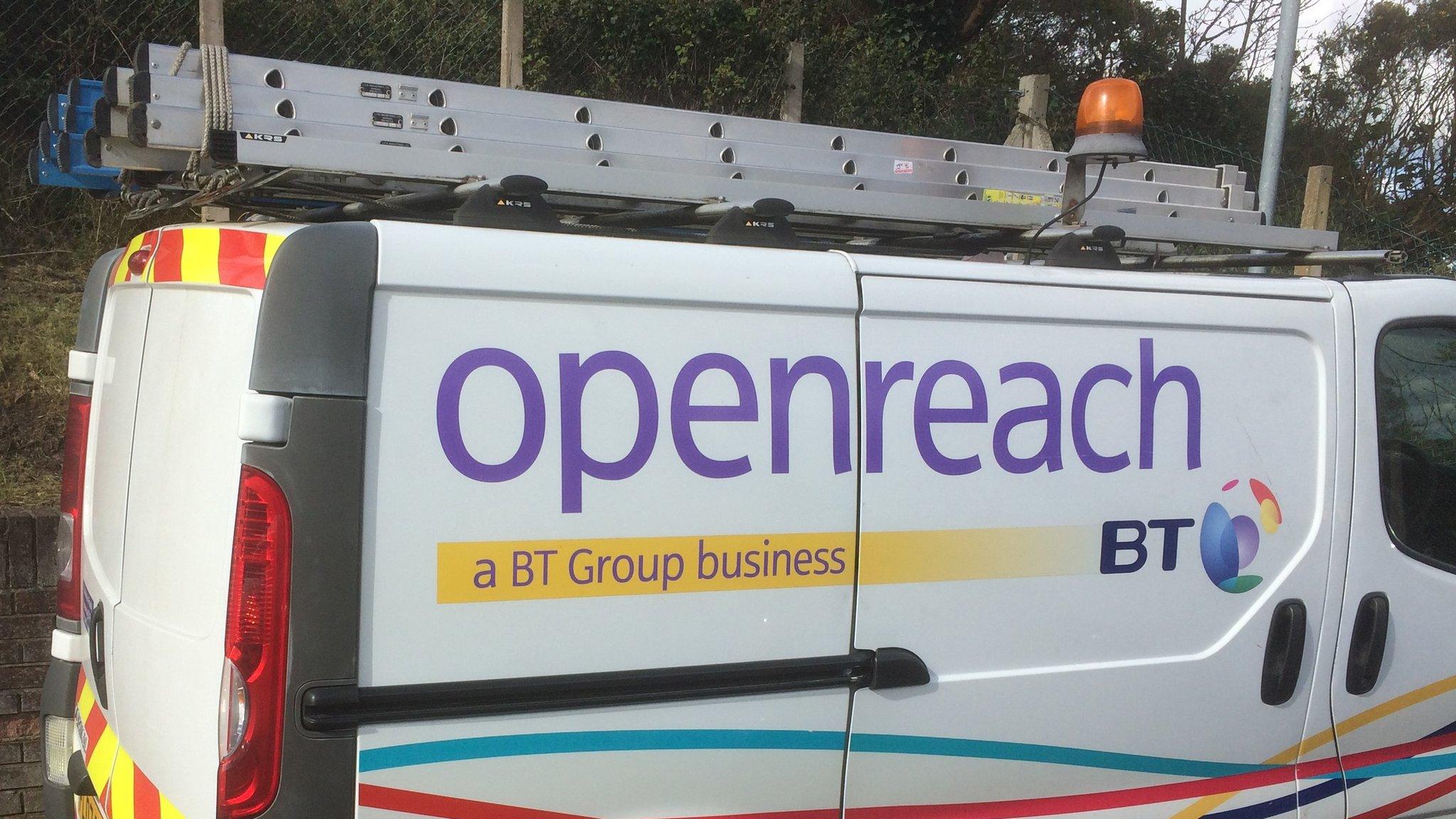How BT dodged a bullet on Openreach
- Published

The reaction from BT's investors told us much about media regulator Ofcom's ruling on the fate of Openreach, the BT subsidiary that provides much of the UK's broadband infrastructure.
Relieved that the giant telecoms company would not be broken up, they piled into the shares, sending them up 3% in early trading.
BT dodged a bullet - and, as the chief executive of Ofcom, Sharon White, admitted, it was for prosaic reasons.
She said complications with land deals and BT's giant pension scheme meant there were "practical obstacles" to a break-up that would delay the process several years.
It's the pension scheme that probably most influenced Ofcom's thinking. BT's retirement scheme, inherited from its time as a state-owned utility, has assets of about £40bn and a deficit, on some measures, of about £10bn, even though BT has poured in billions of pounds in recent years to redress the gap.
'Costly headache'
Senior sources at the company say that about 80% of the scheme relates to Openreach, the internet infrastructure provider that BT's rivals would like to see spun off.
Separating the pension as part of a break-up would be a costly headache - and there is the small matter of a government guarantee on part of the scheme, something that BT fought in the courts to preserve and won.
Creating two new pension schemes, with the risk of weakening the financial resources of one or the other, might be too hot a political potato, even in the pursuit of faster broadband.

BT's share price reaction might turn out to be overdone. Ms White plans to enforce the separation by introducing not only a new board to run Openreach, but also new articles of association that will give directors a duty to serve customers of the network as much as the company's owners.
This holds out an obvious prospect of conflicts to come, and runs counter to the normal assumption that in private companies, the shareholder is king.
It also carries an echo of the "golden shares" held by the government in Rolls-Royce and BAE Systems, two companies judged important for the defence of the realm. In each case, the golden share is actually enshrined by specific articles of association that give directors and the government powers beyond those normally enjoyed by company boards.
BT's chief executive, Gavin Patterson, said he thought he could reach a compromise with Ofcom, but admitted they would need to see the detail of the new articles.
If they prove too much at odds with BT's own desire to control Openreach - which it will still own - get ready for a court battle and perhaps, eventually, a full break-up.
- Published26 July 2016

- Published25 July 2016

- Published19 July 2016
